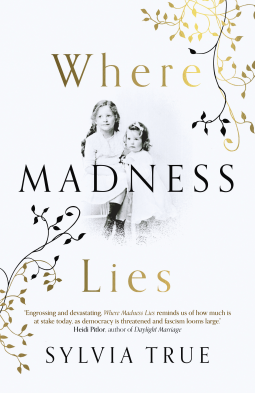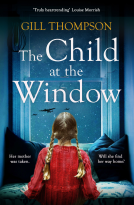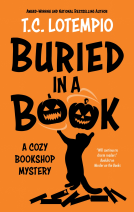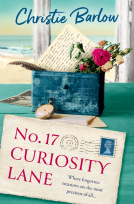
Where Madness Lies
A Novel
by Sylvia True
This title was previously available on NetGalley and is now archived.
Send NetGalley books directly to your Kindle or Kindle app
1
To read on a Kindle or Kindle app, please add kindle@netgalley.com as an approved email address to receive files in your Amazon account. Click here for step-by-step instructions.
2
Also find your Kindle email address within your Amazon account, and enter it here.
Pub Date Feb 01 2021 | Archive Date Jan 26 2021
John Hunt Publishing Ltd | Top Hat Books
Talking about this book? Use #WhereMadnessLies #NetGalley. More hashtag tips!
Description
Germany, 1934. Rigmor, a young Jewish woman is a patient at Sonnenstein, a premier psychiatric institution known for their curative treatments. But with the tide of eugenics and the Nazis' rise to power, Rigmor is swept up in a campaign to rid Germany of the mentally ill. USA, 1984. Sabine, battling crippling panic and depression commits herself to McLean Hospital, but in doing so she has unwittingly agreed to give up her baby. Linking these two generations of women is Inga, who did everything in her power to help her sister, Rigmor. Now with her granddaughter, Sabine, Inga is given a second chance to free someone she loves from oppressive forces, both within and without. This is a story about hope and redemption, about what we pass on, both genetically and culturally. It is about the high price of repression, and how one woman, who lost nearly everything, must be willing to reveal the failures of the past in order to save future generations. With chilling echoes of our time, Where Madness Lies is based on a true story of the author's own family.
Available Editions
| EDITION | Other Format |
| ISBN | 9781789044607 |
| PRICE | $18.95 (USD) |
Average rating from 130 members
Featured Reviews
A difficult, challenging read but worthwhile. Based on the author’s own family the story follows a family in 1934 Germany and 1984 USA uncovering what happened in the past and how this can influence the future.
Dealing with eugenics, the Nazi rise to power and their desire to rid the world of people with mental illness and other defects.
Inga struggles to help her depressed sister in Nazi Germany and fifty years later tries to help her own granddaughter Sabine who has similar problems..
This book makes the reader think about family, depression, communication and hope for the future.
 Michael S, Reviewer
Michael S, Reviewer
What’s it all about?
This is a true account set within two different time periods interchanging between 1930’s and 1984. It focuses on four main characters, Sabine, Inga, Arnold and Rigmor. who’s fate are interwoven by part circumstance, and part biological fate.
Its begnnings are amongst a backdrop of Nazi Gremany, rampant anti -Semitism ,Health Courts, developing Psychiatry and Eugenics.
What’s good about it?
Its a fantastic albeit heart wrenching story of deteriorating mental health during a period of extremism and racism against people who were deemed unworthy to live. The phrase “life unworthy of life” ( German“Lebensunwertes Leben”) was a Nazi term for the segments of the populace which according to the Nazi regime had no right to live. The characters are well described and the interpersonal narratives between them all felt as though I was living through the same brutal place. I have to say that Inga is a remarkable, courageous woman and I could have quite easily fallen in love with her myself; a true feminist in compared to its modern day interpretation. I try to imagine what decision I would have made if I were presented with the same circumstance as her; it will break your heart!
These were people of high society, who had wealth and were very cultured in the arts, but in many ways helpless and at the mercy of the changing political landscape.
The descriptions of the asylums were detailed; providing the reader with some unique insights of what life was like for some of the patients.; and provided the embryonic stages of the final solution. The title is a cleaver one, and has many meanings once the full story unfolds.
What’s not so good about it?
To be really picky, I would have liked a slightly longer ending to tie off some of the narrative.
Overall
An absolutely riveting read, Loved it, Love it !
This was a step out of my normal genre comfort zone, so my enjoyment of this book kind of came as a shock. I really enjoyed the writing and the way the author conveyed the different emotions surrounding this tragedy. Knowing this was based on real events really grounded the story and caused me to really connect with the characters. Overall, a very compelling read.
I highly recommend reading this, despite myself not having finished this. I primarily read non-fiction and when I received an email about this book from NetGalley I thought it was non-fiction based on the description in said email. I should have paid more attention. The writing is beautiful and the story is excellent for as far as I have gotten. However, I prefer non-fiction and have so many other books I am needing to read for author and publishers that I can't give this one the full attention it deserves. I may come back to it some day and finish the story, but for now I will have to stop.
 Ronni K, Librarian
Ronni K, Librarian
WHERE MADNESS LIES explores the effects of mental illness on two women in the same family, a grandmother and granddaughter in different times and in two countries. Rigmor, the grandmother lives in pre-war Frankfurt, while her granddaughter ( though we don’t know this right away) Sabine lives in 1980s Massachusetts. The link between them is Inga, who will stop at nothing to get help for her sister Rigmor who suffers from depression and psychotic episodes. Despite wealth, influence, and determination, Inga is unable to save her sister. She enlists Dr, Arnold Richter, who becomes doctor, friend, and one-time lover to Rigmor. In caring for her, he gets first hand knowledge of Nazi plans to put the sick and “feeble minded” to death, but his cries fall on deaf ears.
Riddled with guilt, Inga then becomes determined to help Sabine, who is institutionalized in 1984. Happily, Sabine’s treatment is more successful given the advances in mental health treatment.
Although fiction, the book is based on the author’s own experience and that of her grandmother. It’s a sobering read, but the story is always interesting and moves very quickly. It’s an important book in that it can perhaps help some readers to view mental illness differently.
**I received and voluntarily read an e-ARC from NetGalley in exchange for an honest review. All thoughts and opinions are my own.**
WWII and the Holocaust are never easy topics to write (or read) about. Most people associate the Holocaust with the killing of countless Jewish people, but a lot of people either forget about, or in some cases never even knew about the eugenics aspects of war.
Seeing as how the book is based on true historical events, I would sometimes find my mind wandering, thinking about how I would react in those times. As the book jumps back and forth in time, it's not always easy to follow, but the author does a decent job of keeping you grounded in the story.
Overall, it's a heartbreaking, but well written story.
 Reviewer 238609
Reviewer 238609
This is a story based on true events. It is the tale of two sisters, one with a mental illness in rising Nazi Germany and the sister who will do anything to protect her. I haven't read any books dealing with those diagnosed with mental illness in Nazi Germany and this was the first. I couldn't put it down.
I would like to thank Netgalley and the publisher for providing me with a copy free of charge. This is my honest and unbiased opinion of it.
 Reviewer 544672
Reviewer 544672
A story based on true family history. It made me cry to think of the suffering of forcing sterilisation on people with mental health problems. It’s a powerful read that will stay with me for a long time. I totally recommend this book whilst it’s not a book to ‘enjoy’ it is a worthwhile read.
 Margaret D, Reviewer
Margaret D, Reviewer
Sylvia True has based her book on her own family history
Although we are used to the convention of novels structured over multiple timelines and various points of view requiring the reader to juggle between the distant past, the recent past and the present it does not always guarantee a smooth read. And so I found with this book. For some unknown reason I really struggled in figuring out who was who and what was their specific function/place in this particular structure/time. So many times I had to stop and think about who was who and I literally (obviously not but..) staggered through the pages, muttering to myself and thinking of abandoning the whole thing.
Then, thankfully the mist lifted and I was there, following the action, shifting from scene to scene, always pondering what was going to happen in the other strand of the story. At last!
The story has two main timelines, Germany in 1934 and the USA in 1984 and fundamentally it is about two sisters, Rigmor and Inga; the daughters of influential, wealthy Jewish parents. Rigmor the younger girl suffers from depression and anxiety and her sister is determined to find a cure for her, whilst her mother a somewhat domineering person, seeks to keep her close and not discuss the issue. This is set against the background of the Nazi’s rise to power, their ‘scientific’ solution to feeblemindness, and their intelligent examination of eugenics.
In 1984 in the USA Sabine (a descendant of the girls’ mother) is similarly affected by depression and anxiety not helped by the recent birth of her daughter; she agrees to become a voluntary patient of McLean Hospital not realising that this will in fact mean she gives up her baby for the period of her hospital stay.
This is beautifully, tragically written and as soon as I grew to identify and recognise the characters my heart and mind raced: it was clear what was going to come, alarm bells resounding ‘Run, Run’ - the inevitability of it all is heartbreaking. I read with horror of the development of the ‘solution’, the description of the shower and for the poor children – babies just neglected, left to die.
A powerful, powerful book, perhaps made even more so because it is so understated in places – the place of privilege the family lived in, the position of influence and wealth – in the end, it mattered not.
Thank you to the author, publishers and NetGalley for providing an ARC via my Kindle in return for an honest review.
I was kindly gifted this book as an ARC by John Hunt Publishing and Netgalley in return for an honest review. I thank both parties for the gift.
A story about two Jewish sisters in what will soon become Nazi Germany. Rigmor is a patient at Sonnenstein which was one of Germany’s best psychiatric institutes. As the Nazi’s rose to power Rigmor’s life is at risk as the Nazi cleansing takes hold.
Inga her sister is fiercely protective of Rigmor and the story links Inga’s battles for Rigmor and her Granddaughter Sabine many years later.
I have always taken interest in the atrocities that took place during Nazi ruling. I have read a number of books and visited a number of historical sites. Everyone of them has moved me the inhumanity never ceases to creep up on me and all of these stories need to be told and retold.
This particular story gave me a whole new perspective and another aspect to the horrendous acts that took place.
By far though this was a book about love, the love of sisters, mother and daughter one human to another. Truly the most powerful force. Inga at times was harsh and seemed unfeeling, as the story progressed and moved backwards and forward through the years it was clear Inga would do whatever was necessary for the people she loved.
I was moved many times and the fact this was a based on a true story increased the affect of the storytelling.
Despair, atrocities, mental health issues and suffering ran throughout but it was all overshadowed by the love and care that one human gives another.
Fabulous read and highly recommended
I found this book a little slow to get going but once I got further into it I was really drawn into the story of all the various characters and their stories. I was both intrigued and horrified by the treatment of some patients in the psychiatric institutions. Inga tries so hard to help her sister Rigmor. It conveys the high price paid for repression and the very tough consequences paid by people who find themselves in these institutions at a time of the rise of eugenics. The fact that this book was based on a true story is both thought provoking and heart breaking. A must read book.
 Simon A, Reviewer
Simon A, Reviewer
What a pleasant surprise this book was. Sometimes a title or cover catches my eye, or a description intrigues me, as happened with this tale.
I thought it might fill a space between books, was more likely one that my wife might enjoy, but i would give it a go.
I sat and finished it in two sessions. It was blinking fantastic! There was enough science, modern history and social commentary to fulfil the reader's sense of a book well rounded, with a really intense and gripping human interest, family relationship plot that just demanded to be read and enjoyed.
This book is well worth investing your time and effort in and it will reward you well for it.
When young mother Sabine checks voluntarily into a mental hospital in the early eighties out of desperation, she never imagines that 'voluntary' immediately becomes signing away her freedom and the right to be with her baby.
Her grandmother, who soon reads about the news from Switzerland, however, is quick to react, flying out to the States, to her rescue.
Everyone knows a Grandmother Inga: domineering, full of the kind of good advice that cuts like a bread knife, Sabine is soon ready to send her packing. Smile, be happy, she tells Sabine. Take a little trouble, show your hubby you really appreciate him. Grandmother also proves to be the best advocate Sabine could possibly have.
For Inga came of age in Nazi Germany, where her own sister Redmor, also suffered from mental illness. This is a Jewish family, but Inga's family is resourceful enough to be one step ahead of the authorities there. But her sister has already been committed to an asylum, by now, with the Nazi drive to rid the world of all those deemed to be a burden on society, now becoming an increasingly dangerous place to be. But will Inga be able to rescue her sister in time?
This novel is based on true historical events. The description of a pilot state-sanctioned murder carried out on three mental patient witnessed by Redmor's psychiatrist, and where he happens on a children's ward where the children are being starved to death, are reported as chillingly as might be expected. There is also the tacit reminder that this inhumanity towards other vulnerable humans still exists in part with the lack of dignity of Sabine's current position. There is little attempt, for example, to examine the stresses a young mother may have to endure if true support is missing for whatever reason. There are only padded cells and imprisonment, alongside stigmatisation.
This is also a tale about family secrets and traumas, and how they come to be reflected in more contemporary times, through the lives of the children, and those children's children. Yet, this story is one about bravery and heroism too, however originally unprepossessing this heroism and altruism may be encased in.
 Emily S, Reviewer
Emily S, Reviewer
I actually don't know where to start with this book as there is a lot going on (mental illness, anti-semitism, homophobia, euthanasia) and a lot of heartache that could have been avoided if not for the rise of Nazism. But I really enjoyed it (although the subject matter was a bit gruesome at times, although handled with sensitivity) and I will be thinking about it for a very long time. The main character Inga is very headstrong and desperate to help her sister Rigmor. It made me wonder if I would have made the same decisions and with the beauty of hindsight I probably wouldn't have, but at the time (1930s Germany) the threat of Hitler was not clear. What a lovely character Arnold is, desperate to help Rigmor whilst also trying to help others in Sonnenheim and trying to warn the world of Hitler's plans. I wasn't so keen on the 1980s characters, mainly because the love between the family was not as apparent as it was in the 1930s. However the 1980s part is important to allow the truth from the past to come out.
I highly recommend this book if you want to feel grateful that you are alive now and not back then.
"Where Madness Lies" by Sylvia True is a fabulous book about a subject largely overlooked in historical fiction,. There are many books written about the Holocaust and the extermination of over six million Jewish people by the Nazis. This book deals with another, but lesser known, evil perpetrated by the Nazis; the sterilization and euthanasia of the mentally ill in order to assure that their "undesirable traits" won't be passed on to future generations of Germans.
The story is told through two timelines. In the 1930's, the book focuses on Rigmor, a young woman institutionalized for her mental illness. In the 1980's, the book focuses on Sabine, also a young woman coping with mental illness. The two timelines are linked by Inga, Rigmor's sister and Sabine's grandmother.
This is not a light read, but it is beautifully written with well-developed characters. The characters are imperfect and flawed and so very real. Readers will find themselves confronted with questions about ethics and the difference between being complicit and just following orders. This book is well researched and I loved all of the strong woman characters, especially those diagnosed with mental illness. The author does an excellent job showing that mental illness does not equate with weakness. This is a powerful and emotional novel and I look forward to reading more from this author.
Many thanks to NeetGalley, the publisher, and the author for the privilege of reading an advanced digital copy of this fabulous book in exchange for my honest review.
 Ionia F, Reviewer
Ionia F, Reviewer
Whilst I have read a lot of books set partially or fully in the Nazi era, this one is different. In my opinion, this book deals with fundamental issues in history that often get overlooked--and still manage to get overlooked a lot of the time now. This book is memorable and has some staying power. I'm still thinking about it weeks after finishing it.
One of the things that impressed me about this book, was that it unabashedly delved into topics that are still seen as taboo today. Dealing with the issues of eugenics, forced sterilisation, and mental health are easy subjects to cover, but I found that this author did so with grace. This book is very historically based, and although it is fiction, it is strong fiction based on facts.
The overall effect of this novel on me was very powerful. I felt as though I knew the characters personally and that the author's voice was speaking to me as a reader. If you are looking for something with some depth to read, this would be an excellent choice. I'm hoping for more from this author.
This review is based on a digital copy provided by the publisher through NetGalley. All opinions are my own.
 Tracy W, Bookseller
Tracy W, Bookseller
I found this story disturbing in a good way if that is possible. Very believable and true to what happened in this type of facility. Even today I think the stigma of mental health is worrying. As this story shows there are no easy fixes for people disabled by these problems. Well written.
Thank you NetGalley for the opportunity to read this book as an ARC in return for a honest review. When I saw the description of Where Madness Lies I was very intrigued and was hopeful to be able to read this ARC. The book did not disappoint. Going between the 30's and 80's and sharing the lives of two young women with mental health issues. The story is told from the standpoint of Inga (the sister and grandmother) and Sabine. I enjoyed learning about the history, although very disturbing and sad, of how individuals with mental health issues were treated during the time of Nazi rule in Germany. Also seeing the hereditary factors at play that continue through out the years. I really enjoyed this book and look forward to more by this fantastic author. Thank you so much!
 Reviewer 509119
Reviewer 509119
I was really looking forward to reading this book. The description had me very intrigued. It’s a great story about mental illness in the time of Nazi Germany. A good depth to all characters and a brilliant storyline. I felt it started slow but I think the author was trying to give you as much information about all the characters to build that big picture. I really enjoyed the duel time aspect. A really great read.
 Loraine P, Reviewer
Loraine P, Reviewer
I’m finding it difficult to begin to explain the experience this book has taught me, a true story from the authors own family.
It is an inter generational story about mental illness and the treatments available set in Germany in the 1930s and America in the 1980s. An extremely compelling story of a Jewish aristocratic family living in Germany during the rise of the nazi regime with insightful facts of how mental illness was viewed and the horrific tragedy that decided the fate of its victims.
Alongside this was the story of the granddaughters voluntary admission to a mental health facility in America and the way she was treated.
The struggles of the individuals is very real and some of the narrative is heartbreaking but I’m grateful to have been given the opportunity to read it.
Synopsis
Rigmor is a soft spoken jewish woman struggling with mental illness in Nazi Germany. Her family is desperate to get her treatment, especially her sister Inga. Inga is a strong willed practical woman used to getting what she wants. She believes in educating herself and readily makes her opinions known- loudly. Arnold is a psychiatrist at odds with his profession and their handling of people with mental health issues under the Reich.Sabine is struggling with post partum depression in the wake of her first child’s birth. When she seeks help she does not realize how her family’s past plays a role.
Review
What follows is a tragic story about the mental health crisis in Germany at the beginning of the Nazi’s reign and how the people directly affected were treated. The story moves between past and present POV across Rigmor and Sabine’s metal health issues and their time spent in asylum’s seeking treatment. Interwoven is a story of a family run by 2 iron willed women and their relationships with men, with each-other, and the family ties that bind them.
I am a huge historical fiction fan and so immediately I was interested in this book. I appreciate how the author depicted the symptoms of depression. The reader is provided with a glimpse into what it must be like to endure feelings of despair on an ongoing basis. I loved the blunt forthright tone of Inga and her mother. I loved how naive Arnold and Sabine are about the world in general and their insistence on giving people the benefit of the doubt. A fabulous read!
Highly recommend for people who loved Cilka’s Journey, Still Alice, The German Midwife.
 Amy S, Reviewer
Amy S, Reviewer
This book had me interested from the first time I read the description and it did not disappoint! It wasn't your usual WWII novel because it focused on mental health care at the time. It was so interesting and well done. I loved the characters and the plot flowed so naturally. I would definitely recommend this book to anyone who loves historical fiction. I received a copy of this book from netgalley and the publisher in exchange for my honest review.
"Where Madness Lies" by Sylvia True is the fictionalized retelling of a horrific piece of the author's own family history. Set primarily in 1930 Germany, we meet the Blumenthals. Frau Frieda and her two adult daughters, Inga and Rigmor, live a privileged "fairytale-esque" life. Aristocracy cast in the old European style. Very rich. Very influential. Highly educated and progressive in many of their world views. Revered and admired by many within their community. And very clearly Jewish at an extremely dangerous time and place to be so.
Told primarily in alternating chapters, we learn much from Inga's retrospective recollections of pre-war Germany, as well as through her desperate attempts in the 1980's to rectify the unexpected and potentially devastating consequences of choices made in that time that have influenced the lives of her descendents. The terrible personal impact of Hitler's far-reaching madness to "purge" Germany of anyone and everyone deemed "inferior" or "defective" is heartbreakingly retold utilizing examples, both large and small, of how this cruel and evil ideology played out in real ways in the real lives of the people of Germany.
If you are unfamiliar with the concept of eugenics and how this medically supported (in the early part of the twentieth century) philosophy laid the groundwork for the larger global horror of the Nazi regime's systematic executions within the concentration camps, True's novel provides a personal look at its early applications. We see clearly how its practicianers were able to spin a web of pure evil over the world. Through her story development the reader is able to see how insidiously evil can seep into our world, especially when in the guise of "enlightenment" and advancing the "greater good" its entrenchment is supported by the complicit.
I'd like to thank NetGalley, as well as the author Sylvia True, for offering me the opportunity to receive an advanced digital copy of "Where Madness Lies." I offer my review with honesty and gratitude.
"NetGalley
#WhereMadnessLies
 Sandy H, Reviewer
Sandy H, Reviewer
A captivating, heart wrenching read as the author weaves between multi generations in this outstanding book. The reader experiences the horror of how mental health illness was experienced and treated historically, and hope for the present. and future. The strength and the resilience of the women in this book is truly inspiring..
There is much "heart" in True's writing of this tale of two generations of women who suffer mental illness. Therefore, it is no surprise that the novel connects with events from the family history of this author. The novel feels immediate, that we are experiencing the life of Inga, the woman who links these two generations of women. Redemption plays a large role in this novel set in times and places of madness, not only in the minds of the two women Inga attempts to save and bring to a normal life.
 Janette M, Librarian
Janette M, Librarian
A different look at the mental institutions and their decimation during World War II in Germany with the Nazi ideology. True shows us the family and its decisions that lead up to unhappy ending. A family who only wants to help their loved one to be disappointed over and over, with one last effort, not only does it not go well, but ends horrifically with the Nazi party. Highly recommend to historical fiction readers.
 Andrea H, Book Trade Professional
Andrea H, Book Trade Professional
Thanks to Sylvia True, John Hunt Publishing and NetGalley for the ARC of Where Madness Lies.
One can only imagine how people must have felt in 1930s Germany with the Nazis' move towards euthanasia for mentally ill patients, or those they called feeble-minded.. Heart-breaking, frightening and a true account of the brutality of this dreadful regime. Inga does all she can to save her sister, Rigmor, who is chronically depressed. She is thwarted at every turn, even by their own mother. who blamed Inga for Rigmor's plight. The ending has a satisfying conclusion, but I think it will stay in the mind for some time..
Wow what a book! It really makes you think about mental health practices and how much they have developed over the years. Thank goodness we live in an age now where people who have a mental health illness are not dismissed or tortured or starved to death.
The story is set in two time points - the 1930's as the tension with the second world war begins and also in the 1980's. It's clear to see that between these two time points practices have moved on, but they are still very different to what we have today.
In 1930, Rigmor suffers from 'episodes'. Her sister Inga is desperate to help her. Rigmor is quiet and gentle with a lovely appreciation for art and nature, but some days she struggles to sleep, she fears shadows and she is convinced there are creatures in her skin. Inga researches the best psychological practices and sets the ball in motion to find help for her sister. She thinks she is doing the right think, she railroads professionals to help her, but is she actually protecting Rigmor in her actions or actually causing more harm?
When it's 1980 and Inga learns that her granddaughter Sabine has been admitted to a mental hospital, Inga is determined to not let another member of her family suffer in such a facility. She immediately makes it her mission to ensure that Sabine is safe. Her forceful nature gets Sabine's back up and she's convinced her Grandmother hates her and is meddling. But as Inga tries to get help for her granddaughter, she has to address some painful memories...
I thought this was a really insightful book. It shows how sometimes we misjudge people - I thought Inga was horrible at first, really forceful and didn't care what other people wanted so long as she got her own way. But as the story unfolded, I learnt that this is just her attitude, she's very blunt and persuasive but with the best of intentions; she wanted to help her loved ones. It does make you think about peoples' intentions before dismissing them as rude, but you should actually look a little deeper.
I loved the way the story revealed itself and how in doing so it meant that Inga had to look at her own past despite it all being about helping her granddaughter.
It is shocking to think about some of the practices that were seen as normal and acceptable, that those who were mentally unstable were just deemed unfit for life and it would be OK to torture them, to starve them, to relieve their families of the stigma.
I do have slight criticism in the book - I'd like to have been more description into the mental health issues the two women suffered - it was more about how Inga felt rather than giving more insight into the feelings of Sabine and Rigmor. I also think that Inga could have been developed slightly more as a character to show her caring side more.
A very thought-provoking book with a lot to discuss. It would be ideal for book groups.
I really enjoyed reading it and stayed up until the early hours devouring the pages as I began to really care for the characters and find out what happened to them.
A moving story of where mental issues can lead you in thoses dangerous days of WWII in Germany. Inga is trying to save her sister from the clutches of the disease and then from euthanasia. The consequences result in silence, secrets and their psychological repercussions on later generations' own mental issues. Very compelling, the book has two timelines making the reader getting very closed to the characters and feel qith them. I thoroughly enjoyed this book.
Thank you Sylvia for letting me read this book for free on NetGalley.
 Reviewer 688896
Reviewer 688896
This book is based on the inter links between two generations of the same family. I shows how the hidden family history can appear in later generations that have also been affected by the social history of the time. I found the book difficult to get into and at times slow moving. However, I was pleased by the ending, which I found satisfying.
 Reviewer 694817
Reviewer 694817
This is a true story based on the author's family and their experience of mental health during the war and also in 1984.. It is beautifully written and I would definitely recommend this as a great read.
I found myself drawn to the main characters in this book that follow Inga, Rigmor and Sabine in their quest to understand and treat mental illness. Although the subject matter is difficult, the way in which this story is told is also about strength, love and hope. The story revolves around Rigmor, who suffers with depression in 1934 during Nazi Germany and also of Sabine in 1984. The story jumps from one generation to the other throughout, offering the reader the chance to link together the two different experiences and allows you to really feel the emotion of both stories throughout.
It never fails to shock me, however many books I read about Nazi Germany the horrendous, heinous way that people were treated and I did wonder what this book would offer that is different to others. The author has written this true story about her family and she has done this so well. I genuinely felt the emotions that Inga must have felt, the desperation of wanting to help her sister and doing everything in her power to do so and also the feeling of helplessness and guilt and how this affected generations to follow.
Definitely worth a read.
"Where Madness Lies" is a compelling story of family and history that weaves together experiences from two different points in time. Inga's struggle to heal and protect her mentally ill sister as the Nazis rise to power in Germany is mirrored years later—though under much different circumstances—as she tries to support her granddaughter who has just admitted herself to a mental hospital in Massachusetts. The story jumps back and forth in time (between 1934/1984) as we slowly learn the events of the past and how they have influenced the future.
There's so much heart depicted in the relationships and a compelling depth to all the characters, even those that could be considered secondary or tertiary to the main plot. I would highly recommend this book—it speaks not only to the horrors of the Holocaust and eugenics; it forces the reader to grapple with questions of ethics and complicity. At what point do your actions (or inaction) make you complicit? What secrets do you/should you keep to protect those around you?
It's not a light read, but an important one. And it's especially compelling knowing that this fictionalized account is based on events from the author's life.
 Katharine L, Media/Journalist
Katharine L, Media/Journalist
A gripping book, all the more so because it is based on the experiences of the author's own family.
This book serves as a reminder of just how persuasive Nazi propaganda was to many, and the evils that were enacted in the quest to create the master race. The extermination (or in the words of the propaganda 'disinfection') of anyone who did not fit the ideals is hard to comprehend, but it happened.
The other facet of the story is around the inheritance of mental illness - early genetic theories are touched on, as is the difference between the treatment of mental health problems now and then. Although much has changed and treatments are now humane and often effective, the stigma surrounding mental illness remains for many - a topic dealt with well in the book.
A really thought-provoking read.
I found Where Madness Lies to be a fascinating read dealing with clinical depression and other mental health issues and the view over the decades. The atrocities of the Nazis against the mentality ill, while known as fact, were personalized. The book shows even in 45 years how some of the fallacies were (and are) part of our societies make up, giving a great deal of points to ponder. The characters are well rounded and relatable.
This book may be difficult for some readers, but is well worth the time.
Readers who liked this book also liked:
Kim Michele Richardson
General Fiction (Adult), Historical Fiction, Women's Fiction
JUNO
Arts & Photography, Comics, Graphic Novels, Manga, Travel
Jennifer Marshall Bleakley
Christian, Health, Mind & Body, Religion & Spirituality
Jane Lovering
General Fiction (Adult), Romance, Women's Fiction


















